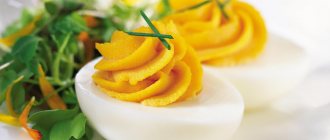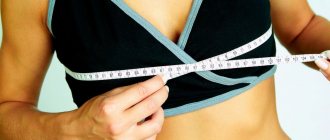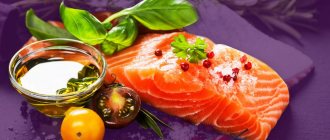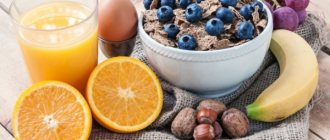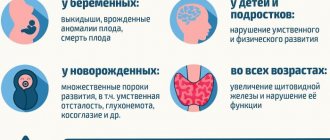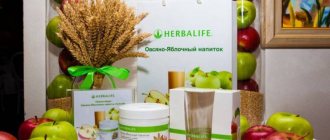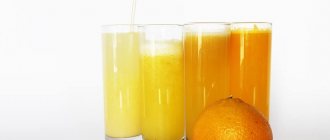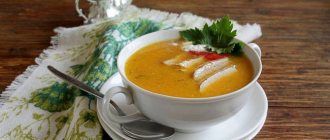In a complex human body, each element performs a strictly assigned function. This allows you to achieve clear and coordinated work of the whole organism. Over the course of a lifetime, organ removal may occur due to injury and illness. The body is able to cope with this, adapt and partially transfer functions to nearby organs. Thus, cholecystectomy is very common. Often a person manages to lose weight after removing the gallbladder or, conversely, gain weight. This may be because the digestion process has been disrupted. Let's consider what happens in the body that has survived the removal.
Diet rules after gallbladder removal
After surgery, it is important to strictly follow the doctor’s instructions and follow a certain diet. The basis of the diet menu consists only of dietary products. Failure to follow nutritional rules can cost a person his life. Please adhere to the following guidelines:
- Reduce your salt intake.
- Limit your fat intake (lard, brisket, fried lamb). Such food is difficult to process in the stomach and puts a lot of stress on the liver.
- Drink plenty of water and juices. Herbal teas, fresh fruit and vegetable teas are useful: cabbage, carrot-apple, pumpkin, carrot-celery. Carbonated water, beetroot and diluted factory juices are contraindicated.
- Drink mineral water only with your doctor's permission. After six months after cholecystectomy and if your doctor allows you to use them in your diet, start drinking mineral water or medicinal herbal teas.
- Take polyunsaturated fatty acids (Omega 3).
- Alcohol and low-alcohol drinks after gall bladder surgery must be completely avoided forever.
- Minimize your intake of foods containing cholesterol. The absence of a gallbladder does not exclude the appearance of stones that form from cholesterol.
- Spicy and smoked foods are taboo (red and black peppers, bitter spices, vinegar).
- Change the way you prepare your meals. To protect yourself from re-formation of gallstones after surgery, boil, bake, or steam food.
- Eat small meals. Divide your food intake into 5-8 times a day. During meals, drink plenty of water and eat small portions of food. With frequent secretion of bile, stagnation is least likely.
- Well-fed people whose weight does not correspond to the norm are recommended to eat food with a minimum of carbohydrates.
- The diet after gall bladder surgery should be balanced, with sufficient minerals and vitamins.
How to lose weight without a gallbladder
If cholecystectomy was performed for cholelithiasis, this will help get rid of pain and attacks. But at the same time, dramatic changes occur in the patient’s body. From patient reviews, it is known that when the gallbladder is removed, proper nutrition helps to get rid of many consequences and complications. You should not use dubious methods, as they can be dangerous.
To prevent discomfort on the right side when dieting, so that nothing hurts during the process of losing weight, you should follow important rules:
- eat a balanced diet,
- avoid consuming large amounts of fats and sweets,
- carry out heat treatment correctly.
What can and cannot be eaten after surgery?
For the first 2-3 months after gall bladder surgery, the patient is prescribed a strict diet, which contains a list of acceptable and prohibited foods. It must be strictly followed, without allowing any deviations. All dishes indicated in the diet are processed: boiled, steamed, stewed. A person who has had his gallbladder removed should not eat fried foods that contain substances that irritate the gastrointestinal mucosa.
Diet in the first days
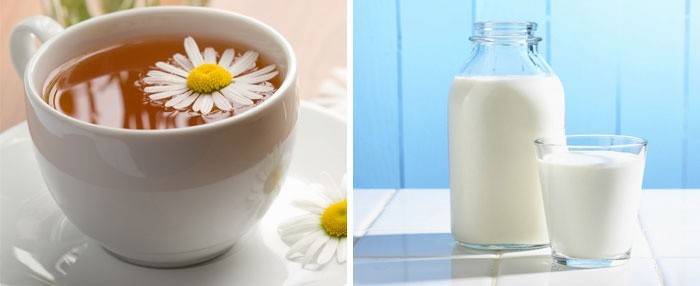
The first hours and weeks after gallbladder surgery are crucial. The patient's regularity of nutrition must be strictly observed. Any physical activity on the abs is unacceptable. The main nuances of therapeutic nutrition after removal of the gallbladder:
- 1-2 hours after surgery. Eating or drinking is not allowed. Dry mouth is considered a normal symptom; to relieve it, the patient wipes his lips and mouth with a swab dipped in chamomile infusion or boiled water.
- In 4-6 hours. When the gallbladder is removed and the patient recovers a little from anesthesia, he is allowed to rinse his mouth with herbal decoctions.
- 24-36 hours after surgery. The patient can drink boiled water, non-carbonated mineral water, unsweetened rosehip infusions or compotes in small sips. The maximum amount of liquid drunk is 1-1.5 liters.
- In 48 hours. A patient with a removed gallbladder is given warm unsweetened tea, jelly, and low-fat kefir every 3-4 hours.
- On the third day after cholecystectomy of the gallbladder. The diet menu is softened a little, not only drink, but also food is added to the diet: mashed potatoes, soups with weak broth, omelet without yolks, boiled fish. The diet is frequent, but in small doses of 2-3 spoons.
- On day 5. White stale (yesterday's) bread or crackers are added to the menu of a patient with a removed gallbladder.
- 6 days after surgery. The patient's diet includes porridge with water, boiled lean meat (chicken, rabbit) and fish, low-fat cottage cheese, and vegetable puree.
- On the eighth day and up to 1.5 months after surgery. A person with a removed gallbladder is prescribed a special gentle diet: 5-8 meals a day, steam food, grind it in a blender, eat it warm. New foods are gradually introduced into the diet (no more than one dish per day).
Reasons for weight changes
Why do people gain weight after removal of the gallbladder, as a result of which it is possible to gain weight dramatically after such a procedure? Typically, after such a procedure, patients rarely gain weight. This is due to the fact that after the operation a large number of adverse reactions appear - nausea, vomiting, frustration. Due to this, many patients lost a lot of weight in the first few months. A severe dyspeptic symptom can cause this phenomenon.
But if there are no side effects or complications, a sharp gain in body weight occurs, as the patient is forced to lead a sedentary lifestyle. In addition, if there is a large amount of fat in the diet, they can no longer be synthesized by bile (which previously accumulated in the cavity of the gallbladder). Therefore, if lipid structures exceed the norm, they begin to accumulate in the body in the form of excess weight. That is why it is very important to follow the diet correctly prescribed by your doctor and maintain strict control over how much fat enters the body.
Therapeutic diet during the recovery period - table No. 5
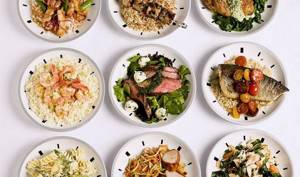
For a faster recovery after gall bladder surgery, the patient is prescribed a special nutritional system. One of the best among many well-known diets is Dietary Table No. 5. Its main tasks include:
- strict abstinence from consuming prohibited, high-calorie foods;
- stabilization of liver function;
- improvement of bile secretion after gall bladder surgery;
- increasing the bactericidal properties of bile;
- activation of intestinal motor function.
Permitted and prohibited products
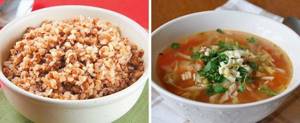
When following a diet after surgery to remove the gallbladder, you must consume:
- Cereals. Oatmeal, buckwheat, semolina, and rice porridge are especially useful after surgery. It is recommended to add not only meat, but also dried fruits.
- Meat. Steamed or boiled rabbit, turkey, veal, beef. From meat dishes after surgery, steamed cutlets, meatballs, and meatballs are allowed.
- Fish. A maximum of three times a week, it is allowed to eat boiled or steamed fish of low-fat varieties: pike perch, tuna, hake, pollock.
- Soups. After gall bladder surgery, dairy with pasta, fruit, beetroot, cabbage soup, vegetarian with the addition of cereals, cream soup made from grated vegetables are useful.
- Seafood. It is allowed to eat mussels, shrimp, and oysters in minimal quantities and occasionally.
- Bread. Yesterday's baked rye, first and second grade wheat, with bran.
- Bakery. After surgery on the gallbladder, it is not forbidden to eat biscuits, dry biscuits, and products made from soft dough with fruit filling.
- Vegetables. Allowed in stewed, boiled or raw form: cauliflower, potatoes, beets, Chinese cabbage, zucchini, bell pepper.
- Dairy products. Sour cream (a spoon per day), yogurt, yogurt, low-fat cottage cheese and cheese.
- Berries and fruits. Everything is allowed (except sour) - raw, baked, dried, boiled; Jelly, compotes, soufflé.
- Eggs. It is possible to use omelettes without yolks.
- Sweets. Marshmallows, marmalade, marshmallows.
- Beverages. Fresh fruit juices (except sour ones), tea, jelly, decoction, compote.
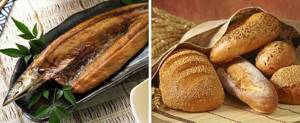
Diet after surgery to remove the gallbladder Table No. 5 implies a taboo on:
- Bakery products. Fresh bread, fried pies, baked goods, puff pastries.
- Soups. Okroshka, strong meat, mushroom, and fish broths are prohibited.
- Fish. You cannot eat canned, salted, smoked, or fatty varieties.
- Meat. Fatty pork, duck and goose meat, liver, smoked meats, sausages, kidneys.
- Dairy products. Cream, fermented baked milk, fatty cheese and cottage cheese.
- Porridge. Cereals of the legume family.
- Eggs. Fried, hard boiled, with yolk.
- Vegetables. Radish, spinach, garlic, radish, green onions, mushrooms, marinades.
- Fruits. Sour berries, citrus fruits.
- Sweets. Ice cream, fatty creams, chocolate.
- Beverages. Soda, cocoa, coffee, alcohol.
- Propolis for immunity in adults
- How to cope with a breakup with a loved one
- Papillomas - treatment of the virus. How to get rid of papillomas at home using folk remedies and medicines
Features of cooking
It is necessary to pay attention to the following nuances:
- A variety of dishes is not prohibited, but the main thing is to alternate them within the permitted limits.
- Dishes and drinks consumed must be warm.
- The menu can only include stewed, boiled and baked dishes.
- You need to eat at least five times a day, every three hours.
- It is useful to organize fish days using various low-fat varieties of fish - pike, cod, navaga.
- You can eat a little day-old white bread every day.
- Berries and fruits are best used for making jelly and compote; in their raw form they can irritate the gastrointestinal tract, in particular sweet and sour varieties.
- Salt dishes can be kept to a minimum. It is better to choose salt of sea origin.
- You should not eat more than one egg per week. It is important to take this into account when preparing dishes (the yolk can cause pain).
- If you have frequent diarrhea, you should not consume dairy products or coffee. Most likely, you will have to give up these dietary products completely.
- You cannot follow diets for weight loss, as they are harmful to the liver.
- Fats cannot be completely excluded, since the body needs them: small amounts of vegetable oil and butter must be present in the diet.
- The most important thing is not to perceive this gallbladder removal diet as a burden. After removal of the gallbladder, diet should become a habitual way of life, a helping hand extended to the body. Eating as a habit will help prevent possible complications in the future.
Sample menu for the week
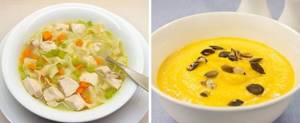
After an operation in which the gallbladder is removed, in order to return to good health, a person has to very carefully select dishes and products for the diet. It will be easier for you to adhere to the required regime if you use the sample menu for the week:
1 day diet
- Breakfast: steamed protein omelette, rice porridge with milk, a glass of tea.
- Lunch: cottage cheese with milk.
- Lunch: vegetarian cabbage soup, some boiled meat, stewed carrots, prune compote.
- Afternoon snack: cookies, glass of tea.
- Dinner: low-fat cheese, pasta with butter, still mineral water.
- At night: kefir (1 glass)
Day 2 of the diet
- Breakfast: apple and carrot salad, steamed meat cutlets, a cup of tea.
- Lunch: apple.
- Lunch: mashed potato soup, stewed white cabbage, boiled fish, fruit jelly.
- Afternoon snack: biscuits, a glass of rosehip infusion.
- Dinner: buckwheat porridge with butter, mineral water without gas.
- At night: kefir (1 glass)
Day 3 diet
- Breakfast: cottage cheese with sour cream, oatmeal with milk.
- Lunch: baked apple.
- Lunch: vegetable soup, boiled chicken and rice, rosehip infusion.
- Afternoon snack: fruit juice.
- Dinner: mashed potatoes, boiled fish, a cup of dried apricot compote.
- At night: kefir (1 glass)
Day 4 diet
- Breakfast: pasta with meat pieces, butter, a cup of tea.
- Lunch: carrot puree.
- Lunch: potato soup, cabbage rolls without meat, a glass of jelly.
- Afternoon snack: apples.
- Dinner: rice milk porridge, a glass of tea, cheese.
- At night: kefir (1 glass)
Day 5 diet
- Breakfast: buckwheat with butter, cottage cheese, coffee with milk.
- Lunch: baked apple.
- Lunch: lean borscht, noodle soup with boiled meat, berry jelly.
- Afternoon snack: biscuits, cup of tea.
- Dinner: mashed potatoes, boiled fish, vegetable salad, still mineral water.
- At night: kefir (1 glass)
Day 6 diet
- Breakfast: steamed cutlets, buckwheat, glass of tea.
- Lunch: carrot puree.
- Lunch: soup with pasta and milk, cottage cheese pudding, a spoonful of sour cream, dried fruit compote.
- Afternoon snack: a cup of jelly.
- Dinner: semolina porridge, mineral water without gas.
- At night: kefir (1 glass)
Day 7 diet
- Breakfast: low-fat herring, boiled potatoes, a glass of tea.
- Lunch: carrot puree.
- Lunch: cabbage soup without meat, noodles, steamed meat cutlets, compote.
- Afternoon snack: biscuits, a cup of berry jelly.
- Dinner: cheesecakes with sour cream, steamed white omelette, still mineral water.
- At night: kefir (1 glass)
Is it possible to fast
Fasting when the gallbladder has been removed is strictly contraindicated. Therapeutic fasting, of course, will not cause harm to the body, but not after removal of the gallbladder. After cholecystectomy, you need to follow a properly prescribed diet. This is also very important if there is an increased risk of developing cholelithiasis.
If a person fasts for a long time or fasts without a gallbladder, the person will soon have to seek help from a doctor again and undergo treatment. This is due to the constant stagnation of bile, which is fraught with the formation of new deposits. If there is no gallbladder, fasting can cause the bile ducts to become clogged with bile and stones can form in them.
